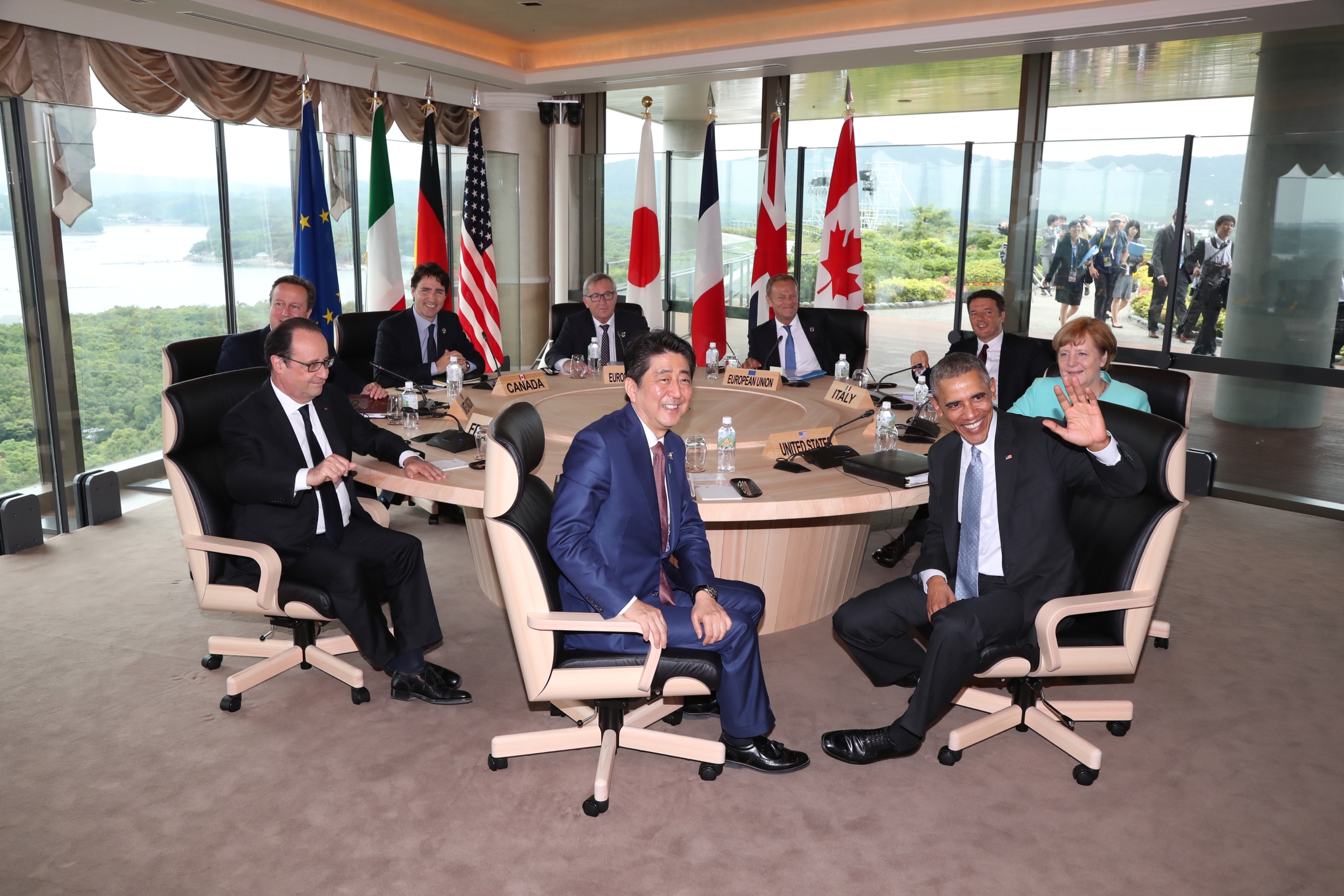LOC19:11
16:11 GMT
 G-7 Summit (Photo by Japanese Government)
G-7 Summit (Photo by Japanese Government)
TOKYO, May 26 (KUNA) -- Leaders of the Group of Seven (G-7) industrialized nations shared the view on Thursday that the global economy faces serious risks, Japanese Prime Minister Shinzo Abe said Thursday.
"We had a full debate and recognized that the world economy is facing major risks," Abe, who chairs the two-day summit, told reporters after a session on global economy.
The two-day meeting of leaders from Britain, Canada, France, Germany, Italy, Japan and the US began in the central Japanese city of Shima earlier in the day.
The premier also said the leaders agreed to implement an economic initiative to tackle these risks.
"Based on the Ise-Shima economic initiatives, the G-7 nations will promote the three arrows of his economic policy known as Abenomics -- fiscal policy, monetary policy and structural reforms to achieve sustainable growth," he said.
This year's summit comes as the world economy is facing uncertainties due to such factors as a slowdown in emerging economies, falling oil prices, possible exit of Britain from the European Union.
Japan and the US have called for fiscal spending to achieve global economic growth, but Britain and Germany have shown caution over the action.
Citing data at the economic session, Abe told his counterparts that global commodities prices have fallen 55 percent since June 2014, the same margin seen during the 2008 financial crisis triggered by the collapse of US investment bank Lehman Brothers, according to Deputy Chief Cabinet Secretary Hiroshige Seko.
The premier called for G-7 policy coordination to spur growth, saying the current global economic situation resembles the one before Lehman, Seko told a press briefing. But some leaders disagreed to call the current risk as "crisis."
"G-7 leaders agreed that emerging economies are in a severe situation, although there were views that the current economic situation is not a crisis," Seko said.
The leaders hold four other sessions to discuss such issues as terrorism, maritime security, refugees and tax evasion and plan to issue a declaration on Friday. (end)
mk.nfm